
This article written by K.P. Girija (girijakp@gmail.com) was the cover story of the magazine Insight Young Voices (Feb-Mar, 2009). It was reproduced on thedeathofmeritinindia.wordpress.com.
Death: The Only Legitimate Protest
Death seems to be the only legitimate form of protest for the Dalit students to highlight their discrimination as well as their right for equal share in the higher educational sphere. The ‘Dalitness’ of these students, in modern spaces, is yet to acquire a language to articulate the pain and the recurrent acts of injustice meted to them.
All the three suicides can be read as statements of protest against the insensitivity of various institutions and the discrimination being practiced there. Still, there has been a tendency to depict these deaths as acts of desperation (of course, personal) of the students and their inability to cope with advanced studies, especially in the Sciences. One can see a clear-cut trajectory of these students’ lives, which lead to personal desperation and suicides. Could we assess all these as something that happened without any intervention from the world they were situated in?
When alive, not one of them could politicise their experiences of discrimination and raise it at a macro level. Yet, all of them would have experienced caste in its micro formations. The fact that Rejani’s primary confidant with whom she shared her humiliations seems to be a woman friend who happens to be a Dalit, is crucial. In his diary Ajay writes about “superiority/inferiority” gazes, which unsettle him in his laboratory, clearly suggesting caste humiliations. Senthil was part of Ambedkar Students’ Association, a Dalit students’ political forum in the University of Hyderabad and might not have been a stranger to the caste debates and its theoretical formulations.
Yet, none of them could raise the issue at a collective level. The structure, which accommodated them within it, did it only as a .compensatory allowance. While it provided representation, it definitely did not provide dignified representation and no space to ask for it, either. Thus, while alive, none of them could raise the issue of caste and discrimination in a way it would be heard. It is tragic that only death could bring out the discrimination towards the ‘Dalitness’ of a student in all three cases.
Dalitness in Modern Spaces
How did these students experience their ‘Dalitness’? A short examination of the immediate incidents just before their deaths is all that we have. (In Ajay's case we hardly have that also).The often threatening phone calls received at Rejani’s neighbor’s house by her or her parents from the N.S.S. hostel, to whom she owed her fees, are not sufficient enough to unwrap the acuteness of caste discrimination.
The continuous journey to one particular bank, more than twenty times, for getting an educational loan to which she was officially entitled under a Reserve Bank of India order – neither is this enough to prove the denial of a loan to a Dalit student. [From the statements of K.Santhakumari, Mother of Rejani, given before Justice Khalid Commission on 14.05.2005].
Yet, we know that the Bank would have denied her loan precisely because of her status as both Dalit and woman though this was not hinted at anywhere except in the overall, tedious procedural approach. As a woman, the Bank would not be convinced that she would take up a career. They might not have been confident of her completing her course at all. Also, her coming to the Bank alone or sometimes accompanied only by another woman, her mother, might have destroyed her image as a ‘respectable’ woman.
As a Dalit, they would not have read her as ‘meritorious’ enough to gain employment, even after the completion of the course, and therefore loan worthy.
Due to her Dalit womanhood, the student life of Rejani seems to have become an endless knocking at various doors for financial support. The last straw seems to be the apparent denial of Transfer Certificate (T.C) from Adoor Engineering College. Rejani had got a chance to join Mary Matha College, which had promised her free education and lodging.
When she approached her college for a T.C, they sent her off to pay the dues. She was sent to the Entrance (Engineering and Medical courses) examiner’s office. It is here that she committed suicide by jumping out from the seventh floor of that building. The choice of her place of death was dramatic; it was the the Entrance examiner’s office. The act was charged with layers of symbolic meaning.
She, a Dalit, had gained her ‘entry’ into an inaccessible system by the impossible feat of passing the exam without attending formal coaching classes. Despite this, her entry was treated as ‘provisional’. In fact, with her death, we realise what Rejani would have constantly heard from the system that apparently gave her entry: “No Entry for Trespassers.”
When Rejani was alive, neither she nor the students’ union or caste organizations could bring out any of this. The deliberate tedium and drawn-out torture of an exasperating process as valid points of discrimination. There might have been protests at a personal level in a minimal way. More than protesting, Rejani had desperately tried her maximum to obtain a loan in order to cope with the situation, to continue her education, her only hope for a better future.
As far as Senthil was concerned, when he was alive, he could not point out the discrimination in the Physics department, which denied him a supervisor. This inability to politically voice his concern happens even though he was an active member of the Ambedkar Students’ Association. Failure in a subject in his course work was the determinant of his merit. Through his death, Senthil can be seen to raise doubts about the acceptance of Dalit students into the Science departments.
He evokes questions through his death on the formal acceptance of Dalit students in the higher academic studies and its true spirit. The ‘logic’, ‘rationality’, and the ‘merit’ that Science claims for itself need to be questioned, if the entry of a Dalit student creates so many ruffles within the system. The structure of the Science discipline was such that Senthil himself, at some point might have believed that he was not competent and meritorious at all to survive in the discipline.
The details of Ajay’s case are not known. Yet, his dairy notes and his status as a student who got twelfth rank in the All India Entrance, yet admitted to the institute as a reservation candidate, would have posed problems of the same Dalithood for him also. These Dalit students, or their existence and day-to-day encountering with their Dalitness (this is not as direct expressions of ritual untouchability, but denying access through new meanings of merit, untimely payment of dues, failure in many subjects/course work etc.) was something that could not be translated into a political process for agitation or bargaining for justice, when they were alive.
Yet, none of them could raise the issue at a collective level. The structure, which accommodated them within it, did it only as a .compensatory allowance. While it provided representation, it definitely did not provide dignified representation and no space to ask for it, either. Thus, while alive, none of them could raise the issue of caste and discrimination in a way it would be heard. It is tragic that only death could bring out the discrimination towards the ‘Dalitness’ of a student in all three cases.
Paradoxically, and tragically, the value of their death is much more than the value of their life to raise the various nuances of institutionalized casteism. As if death is the only elucidation to legitimize the worth of their life!
Refusal to Accept the Direct Meaning of their Deaths
There were instances to subvert the political reasons behind these suicides. For e.g., when Rejani committed suicide, there had been a demand to test the virginity of the girl. Lack of virginity, which pointed to the patriarchal world that she was not quite ‘moral’, was accepted as an overriding factor for a woman to commit suicide. But the fact of caste based harassment staring right into everyone’s face was not accepted or seen as one.
Also, it is strange that one was not thinking of analytically combining these factors – sexuality and caste. Sexuality, like many other categories, can manifest only in the context of other structures like caste. Her lack of virginity, as revealed in the test, assumes the primary importance in comparison to the obviously biased treatment from all corners that she knocked for help. Gender (together with her Dalitness) has played the role here as if her ‘immorality’ took away her right to protest against the caste-biased nature of the educational structure.
Similarly, the University of Hyderabad authorities maintained, even before the post-mortem examination, that Senthil died of a heart attack. The SC/ST employees had to invoke the Right to Information Act to get the post mortem report, which stated poisoning as the cause of Senthil’s death.
Ajay’s father never got to know why his son committed suicide, when he went to Bangalore to collect his body. He had to wait for a whole month to know the details of the tense situation faced by his son, in the lab in IISc, till the IISc SC/ST employees union took up the issue as one of caste discrimination.
‘Conditional’ Representation in Modern Spaces
These cases are examples of how caste functions in a ‘modern’ space like the Higher Educational institution. The structure seems to apparently include Dalits through representational measures like reservations. By this very act of representation, the system claims its neutrality to caste. However, this act of inclusion/representation is coded within certain conditions that are very often invisible and built into the so called inclusive nature of the system.
Paradoxically, these conditions result in the exclusion of the Dalit herself. Dalits have the right to enter the system through reservation, a ‘compensatory discrimination’. Yet, they do not have the right to be treated as equal with the mainstream representatives of the system in all terms and in all situations. There are various determinants to decide this equality such as merit, performance, articulation etc.
There is inclusion through representation and exclusion through different ‘assessment’ and differential approaches. While the system might claim credit for the entry of students like Rejani, Senthil and Ajay and their very presences might be seen as their inclusion into the system, we can see that their subsequent suicides were also a result of the conditions/exclusions that this very inclusion threw up.
Science and the Notion of Merit
If we measure merit in terms of marks obtained, all the three students got very good marks up to their intermediate courses and began losing marks (their brilliance/merit) after joining for the applied science courses. Does it mean that these students were not capable enough to cope with professional courses or applied science courses? If so, does it also mean that there is something wrong in the environment and attitude (in essence, the structure) of the professional institutions towards Dalit students?
Rejani had failed in nine out of the ten courses in her first semester. Senthil too had to clear one paper from his course work, which was understood as a condition to allot a supervisor for him and continue his research in the Physics department. Ajay had problems to cope in the laboratory. His diary shows that he was scared of one or more faculty members.
In general, these can be read as the inabilities of the students to cope with the applied science department, which needs ‘talent’ and ‘hard work’. Yet, it also carries the hidden meaning of the inability of the high skilled department to generate a friendly atmosphere to a group of people who are yet to be familiar with its language, hierarchy and protocol. Science seems to see itself as privileging logic and would shun perspective.
Rationality is prioritized and this is defined as transcending individual experiences. With this logic, students are supposed to be modern individuals who want to become scholars or scientists rather than bringing their other identities – like that of caste, community or gender. This rational and logical frame itself places the subaltern as the ‘other’ in the science department. The attributes of irrationality, illogic and intolerance are not for the mainstream students; those are reserved for the subaltern communities.
Modern Secular Institutions embedded in Caste
There is a preconceived notion that our educational institutions are caste neutral. If at all caste is expressed or practiced there in any form, it is treated as existing only because of the insensitivity of certain individuals. In addition, people do not believe that there is such a thing as ‘institutional casteism’.
Therefore the cultural democratic space like an educational institution will hardly be questioned until some direct caste atrocities happen in those spaces.
Marginalized individuals also do not experience the hegemonic control of the knowledge over them as discrimination and a structural problem. For them, caste is experienced as an attitudinal problem – either from department heads, economical institutions or from authorities who represent the institutions.
He evokes questions through his death on the formal acceptance of Dalit students in the higher academic studies and its true spirit. The ‘logic’, ‘rationality’, and the ‘merit’ that Science claims for itself need to be questioned, if the entry of a Dalit student creates so many ruffles within the system. The structure of the Science discipline was such that Senthil himself, at some point might have believed that he was not competent and meritorious at all to survive in the discipline.
One could think about the environment of this higher education as a space where there is a mingling of different kinds of students from different castes and classes and religions. Irrespective of the caste and religious identity, anonymity to a certain extent is possible in these spaces.
Yet, within this anonymity, the determinants of caste, religion or region could be ‘read’ through language, lack of or command over English, submissiveness or assertion, articulation capacities, regional or urban nature, mode of dress, complexion etc. In other words, these determinants of Dalitness or upper casteness are much more practically applied than the details in official records.
Conflict in Dual Representation
Dalit students have to carry the mark of their community (not in terms of the name of their jati but in terms of their Dalitness). They are also modern individuals in elite higher educational spaces. In these spaces, they face humiliations at a very personal, individual level, yet those very humiliations happen due to their Dalitness as a community. None of the above mentioned students could communicate their humiliations to their parents.
The parents residing in faraway places were not able to give emotional support to their children. To some extent, the parents were not aware of the intensity of the humiliation of the modern spaces. The humiliation for a Dalit student comes in the form of lack of performance or rather lack of merit, not paying the dues in time etc. It never comes directly as caste discrimination.
It never acknowledges itself as the inability of the system to assimilate some social groups. How to translate these kinds of approaches into caste discrimination and communicate it to the parents who stayed away from the modern institutions would be another painful task. It would be difficult for the children to tell the reality to the parents very often; whose only hope would be these kids.
In most cases, the parents/family did not get any hint of the desperation from the part of their daughter/son. Communities could overcome the humiliations in their togetherness in sharing and laughing out, negotiating and sometimes protesting too. Individuals have their own limitations to take the burden of these humiliations.
These students tried to negotiate and struggle their best, but after a point they couldn’t bear it anymore. Simultaneously, they were forced to shoulder the dual identities – that of a modern, educated individual (as science students, rational, logical etc) and at the same time, as a merit less Dalit. The contradiction was too much for them to bear. Finally it ends in their suicides through which they tried to question or destabilize the structure in whatever little way they could through their deaths.
They had all proved that they were ‘capable’ and ‘meritorious’ for this very educational system till their intermediate/degree courses. In that case, would they ever think about turning back and do some menial labour there after coming through the long 12-15 years of education?
In their aspiration to become modern educated individuals with better jobs, they fitted neither in the higher educational system nor in their villages. The long and excruciating journey from a remote village to an urban secular space lead them to a nowhere place.
Inherent Structural Tensions
Dalits or Tribals have entered the system mostly through representational measures like reservations. But, this is seen as an ‘excessive’ presence and hence ‘threatening’ presence to the system. That is why a bank manager is reluctant to sanction a loan to a poor Dalit girl for her higher education instead of thinking about the possibilities to grant it. That is why the University stopped the scholarship of Senthil Kumar instead of formulating a new approach to deal the situation. (Even though there is no law of the university which states that scholarship is connected to passing or failing in exams).
When the structure has been destabilized or questioned in a minimal way (only) through the death of the Dalit students, immediately it tries to retain its status quo, often using compensatory measures. In Senthil’s case, the University had granted an amount of Rs five lakhs to Senthil’s family. Here, it was the cost of a Dalit youth’s life and hope which was burnt in a University. Another ‘compensation’ was the immediate allotment of guides to two Dalit students. In Rejani’s suicide case, the State immediately enhanced the amount of monthly stipend for SC/ ST students from Rs 315 to Rs 1000.
These temporary compensations or welfare measures would pacify the troubled situations. It would also help various institutions to wash their hands off from the crime of pushing the students to suicides. Through compensation or some welfare measures the institution or the State is admitting its inability to assure distributive justice to the subaltern communities. Through these compensatory measures it is also trying to reinstate the status quo by reducing tensions though temporarily.
.png)

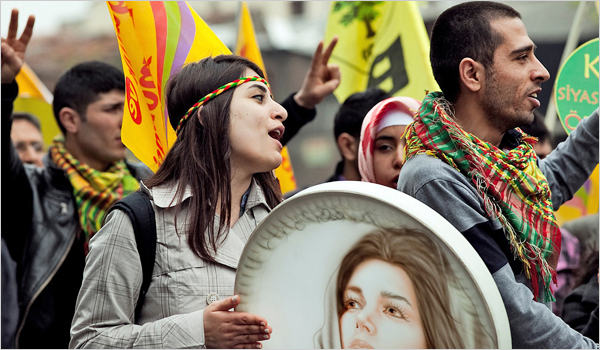
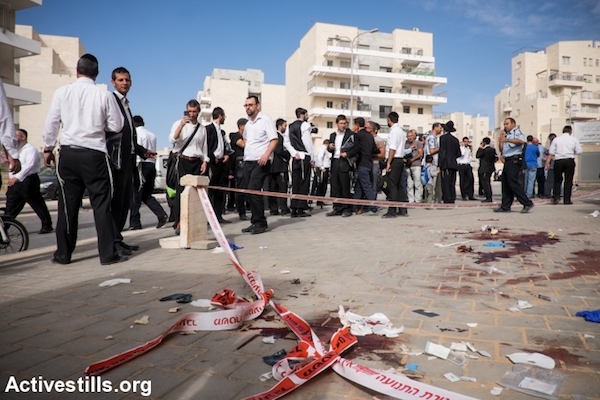

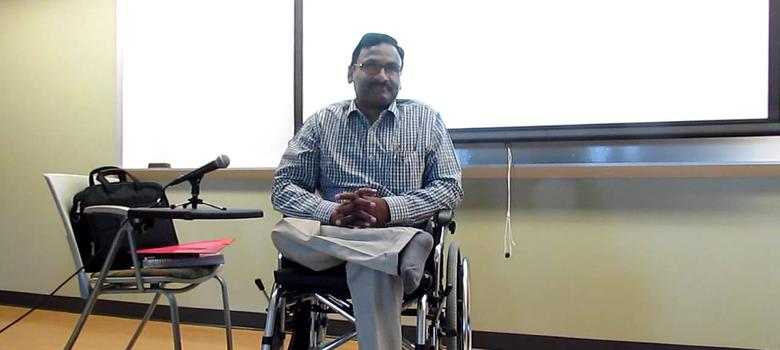
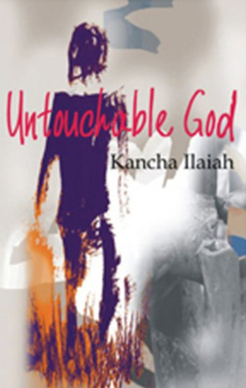
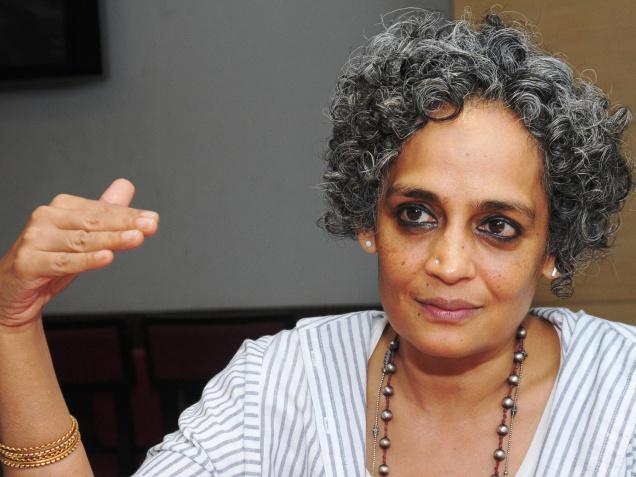
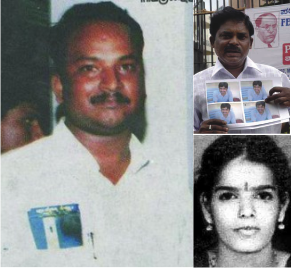
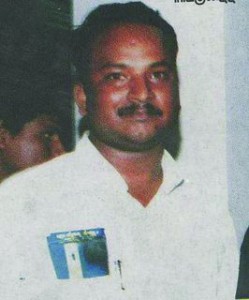 In 2007, Senthil Kumar came all the way to University of Hyderabad, from a village of Salem district in Tamilnadu. He was admitted for his PhD in the School of Physics. He belonged to the panniandi caste, which is traditionally involved in pig rearing and is at the bottom of the caste-hierarchy.
In 2007, Senthil Kumar came all the way to University of Hyderabad, from a village of Salem district in Tamilnadu. He was admitted for his PhD in the School of Physics. He belonged to the panniandi caste, which is traditionally involved in pig rearing and is at the bottom of the caste-hierarchy.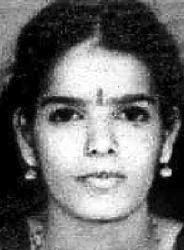 Was a student of Institute of Human Resource Development Engineering (IHRDE) College at Adoor in south Kerala. She got admission on 6.11.2002 in the government quota seat under merit. The Scheduled Caste (SC) Department had remitted her fee. On 22nd July 2004, she committed suicide by jumping from the seventh floor of the Office of the Entrance Commissioner (Medical and Engineering courses) at Trivandrum.
Was a student of Institute of Human Resource Development Engineering (IHRDE) College at Adoor in south Kerala. She got admission on 6.11.2002 in the government quota seat under merit. The Scheduled Caste (SC) Department had remitted her fee. On 22nd July 2004, she committed suicide by jumping from the seventh floor of the Office of the Entrance Commissioner (Medical and Engineering courses) at Trivandrum.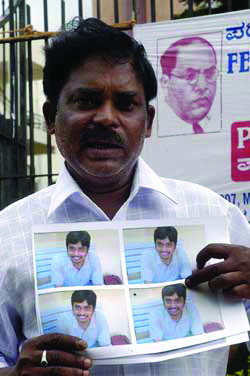 On 26th august 2007, Ajay sree Chandra commited suicide in his hostel room. Ajay had a middle class background, as his father is a faculty at the Government Polytechnic College in Hyderabad. He belonged to madiga community and hailed from Malipuram village, Nalgonda district of Andhra Pradesh. Ajay was a second generation literate from a Dalit family and was ‘meritorious’ enough to compete with the normative ‘value’ of merit. Yet, as a Dalit he had no choice except to commit suicide!
On 26th august 2007, Ajay sree Chandra commited suicide in his hostel room. Ajay had a middle class background, as his father is a faculty at the Government Polytechnic College in Hyderabad. He belonged to madiga community and hailed from Malipuram village, Nalgonda district of Andhra Pradesh. Ajay was a second generation literate from a Dalit family and was ‘meritorious’ enough to compete with the normative ‘value’ of merit. Yet, as a Dalit he had no choice except to commit suicide!